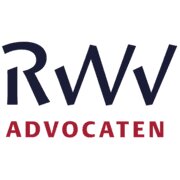Best Due Diligence Lawyers in Leiden
Share your needs with us, get contacted by law firms.
Free. Takes 2 min.
List of the best lawyers in Leiden, Netherlands
About Due Diligence Law in Leiden, Netherlands
Due diligence in Leiden refers to the thorough investigation and assessment of legal, financial, and operational matters before entering into a significant transaction such as purchasing property, acquiring a business, or initiating a merger. This process is critical in the Netherlands, where regulations and local customs can affect the outcome of a transaction. Professionals in Leiden are familiar with Dutch civil law and European Union directives governing transparency and fair dealing. Dutch law also emphasizes the responsibility of parties to act with care and uphold mutual interests, underscoring the importance of comprehensive due diligence.
Why You May Need a Lawyer
Individuals and businesses in Leiden often seek legal counsel for due diligence during activities such as:
- Purchasing or selling property or real estate
- Buying or merging with a Dutch company
- Forming joint ventures or partnerships
- Investing in startups or established businesses
- Preparing for regulatory inspections or compliance checks
- Managing risk in cross-border or international transactions
A lawyer can identify hidden liabilities, verify regulatory compliance, review contracts, and ensure the client’s interests are protected. In Leiden, legal assistance is especially valuable due to local laws, language barriers, and the specifics of Dutch business culture.
Local Laws Overview
Several aspects of local law are particularly relevant to due diligence in Leiden:
- Civil Code (Burgerlijk Wetboek): Dutch law governs contractual agreements, obligations, and company structures, all subject to careful review during due diligence.
- Notarial Law: Many real estate transactions require involvement of a Dutch notary who ensures proper transfer and registration of property and compliance with legal procedures.
- Corporate Governance: The Netherlands enforces strict rules around company registration, shareholder rights, annual filings, and beneficial ownership transparency.
- Tax Laws: The Dutch tax system can be complex, especially concerning transfer pricing, VAT, inheritance, and corporate tax, all of which must be analyzed for potential risk.
- Environmental and Planning Law: Real estate and business transactions require checks for environmental compliance and local zoning ordinances.
- Anti-Money Laundering (AML) Regulations: Dutch law requires due diligence and verification measures to prevent illicit activities, especially for businesses in finance, law, and real estate sectors.
Frequently Asked Questions
What does due diligence mean in the context of Dutch law?
Due diligence in Dutch law is the systematic investigation and evaluation of a company, property, or other asset, primarily to assess legal, financial, and operational risks before finalizing a deal.
Is due diligence mandatory in Leiden for all transactions?
While not legally required for every transaction, due diligence is strongly advised to protect your interests and to comply with industry regulations-especially in real estate and company acquisitions.
Who carries out due diligence in Leiden?
Due diligence is usually conducted by qualified legal professionals, notaries, accountants, and sometimes real estate or technical experts depending on the transaction type.
How long does the due diligence process take?
The timeframe ranges from a few days to several weeks, depending on the complexity of the transaction and how quickly documents and information are provided.
What risks are common if due diligence is not performed?
Potential risks include unforeseen debts, legal disputes, non-compliance penalties, environmental liabilities, and unfavorable contract terms. These could result in significant financial loss or legal complications.
What documents are typically reviewed during due diligence?
Common documents include contracts, organizational charters, recent financial statements, employment agreements, property deeds, permits, tax records, and ongoing litigation files.
How does Dutch law protect buyers and investors during due diligence?
Dutch law requires full disclosure of material information, fair conduct between parties, and offers remedies if a party misleads or withholds vital facts during negotiations.
Can foreign individuals or companies perform due diligence in Leiden?
Yes, foreign parties can perform due diligence in Leiden, but it is strongly recommended to work with local experts who understand national regulations, business culture, and language.
Are there special considerations for real estate transactions in Leiden?
Yes, a notary must oversee property transactions, conduct title searches, and register the transfer with the Land Registry (Kadaster) to ensure legal validity and compliance.
What happens if due diligence reveals a problem?
If a significant issue is uncovered, parties may renegotiate terms, seek legal remedies, walk away from the transaction, or require the seller to resolve the identified problem before proceeding.
Additional Resources
If you require further support, consider reaching out to these organizations:
- Land Registry (Kadaster): Provides legal information on Dutch properties and land titles.
- Dutch Bar Association (Nederlandse Orde van Advocaten): Lists qualified lawyers specialized in due diligence and corporate law.
- Chamber of Commerce (Kamer van Koophandel): Offers guidance on business structure, registration, and record searches.
- Netherlands Authority for the Financial Markets (AFM): Oversees compliance, financial transactions, and reporting obligations.
- Local legal aid clinics: Offer advice to individuals and small businesses in need of support.
Next Steps
If you are considering a transaction in Leiden and require due diligence:
- Consult a local lawyer with experience in the specific area of your transaction, such as real estate, business acquisitions, or investment law.
- Gather all preliminary documents, such as contracts, corporate articles, and property information.
- Discuss your objectives and concerns transparently with your legal advisor for a tailored due diligence plan.
- Ensure all legal, financial, and technical aspects are thoroughly reviewed before making a commitment.
- Continue to communicate with your lawyer throughout the process and act on their advice to mitigate risks.
Taking these steps will help you make informed decisions, avoid legal pitfalls, and protect your interests in Leiden’s dynamic market environment.
Lawzana helps you find the best lawyers and law firms in Leiden through a curated and pre-screened list of qualified legal professionals. Our platform offers rankings and detailed profiles of attorneys and law firms, allowing you to compare based on practice areas, including Due Diligence, experience, and client feedback.
Each profile includes a description of the firm's areas of practice, client reviews, team members and partners, year of establishment, spoken languages, office locations, contact information, social media presence, and any published articles or resources. Most firms on our platform speak English and are experienced in both local and international legal matters.
Get a quote from top-rated law firms in Leiden, Netherlands — quickly, securely, and without unnecessary hassle.
Disclaimer:
The information provided on this page is for general informational purposes only and does not constitute legal advice. While we strive to ensure the accuracy and relevance of the content, legal information may change over time, and interpretations of the law can vary. You should always consult with a qualified legal professional for advice specific to your situation.
We disclaim all liability for actions taken or not taken based on the content of this page. If you believe any information is incorrect or outdated, please contact us, and we will review and update it where appropriate.











